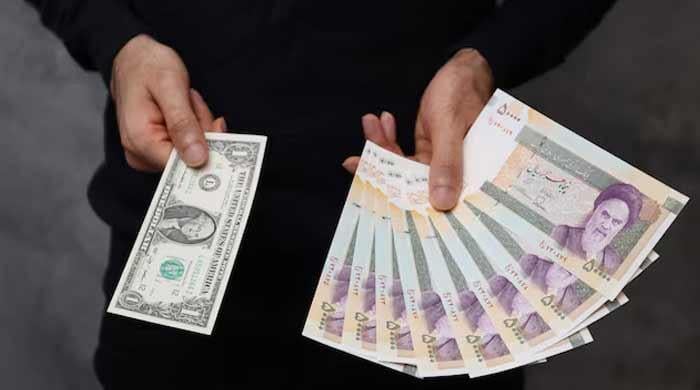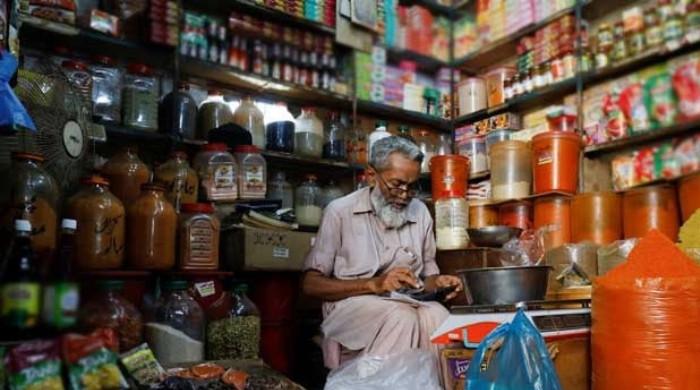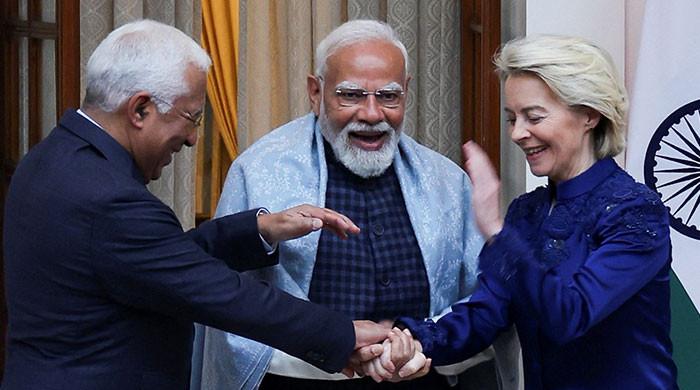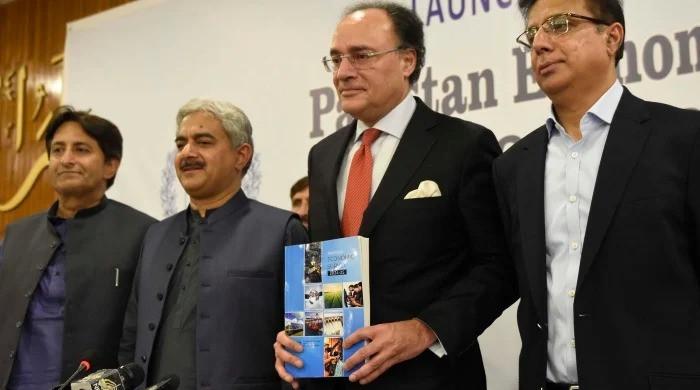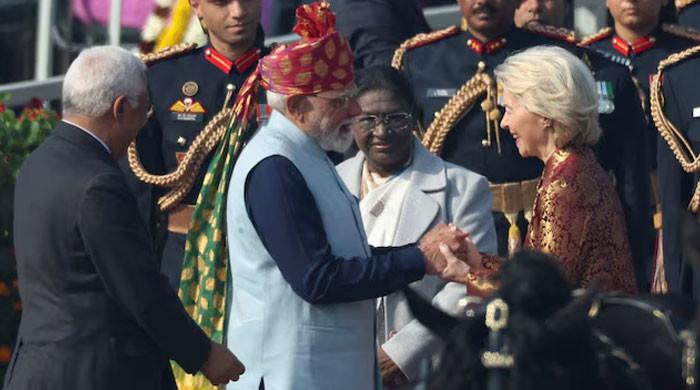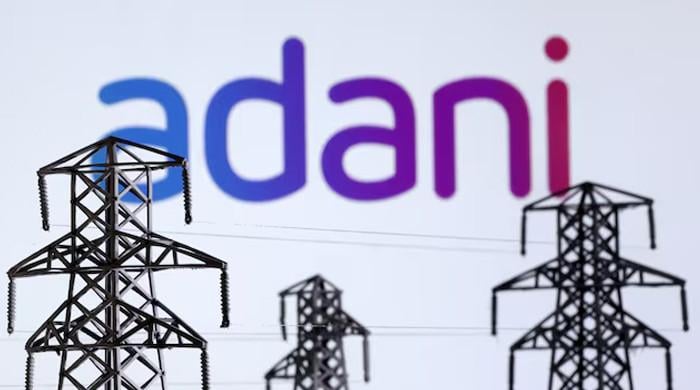Budget 2020-21: The impact of COVID-19 and what the govt is doing to cope
A look at the government's response to COVID-19, from a Rs1,200bn stimulus package to incentivising construction and aiding farmers
June 12, 2020

The budget for the financial year 2020-21, presented today by Minister for Industries and Production Hammad Azhar, made frequent mention of the coronavirus pandemic — and for justifiable reasons.
The government's efforts to bring the economy back on track — which had arguably seen considerable progress in the first nine months of the year — were undone by the outbreak and the unavoidable lockdown subsequently imposed.
Nearly all industries and businesses were impacted. A loss of nearly Rs3.3 trillion to the gross domestic product was experienced, which resulted in a 0.4% contraction in the GDP.
Meanwhile, the budget deficit ballooned from 7.1% of the GDP to 9.1%.
The Federal Board of Revenue (FBR), which had an ambitious (revised) target of around Rs4,900bn lost Rs900bn in potential revenues due to the coronavirus shutdown.
The government's non-tax revenues also experienced losses of Rs102bn.
Likewise, exports and remittances also suffered a decline, and unemployment along with poverty rose sharply.
Steps taken to combat COVID-19
Despite the hit to the economy, the government managed to scrape together a stimulus package package in excess of Rs1,200 billion, of which Rs875 billion have been reallocated from the federal budget.
The money has been allocated as under:
- Rs75bn for purchase of medical equipment, protective clothing and other materials.
- Rs150bn to be distributed among 16 million most vulnerable citizens and shelters.
- Rs200bn to be distributed to daily wagers through direct cash transfers.
- Rs50bn to subsidise goods through the Utility Stores Corporation.
- Rs100bn to be provided to FBR and trade ministry to provide refunds to exporters.
- Rs100bn for rolled over electricity and gas bills.
- Rs50bn for nearly 3 million small enterprises to cover electricity bills for 3 months.
- Rs50bn for subsidised fertilizer, cover loans and various other relief measures for farmers.
- Rs100bn for an emergency fund.
The government, in line with its objectives to bring relief to the people amid restrictions, also introduced tax exemptions worth Rs15bn for food and medical equipment.
So that farmers can be protected from the adverse impact of the virus on the economy, Rs280bn were spent on wheat purchases to support their livelihoods.
Petrol prices were slashed by Rs42 and diesel prices slashed by Rs47 per litre, which translated into Rs70bn in relief for customers.
Construction to pave the way for economic stimulus
The prime minister announced special incentives for the construction sector, which included a fixed tax regime for builders and developers.
Under the regime:
- Construction has been given the status of industry.
- No questioning about source of funding for projects.
- Tax to be levied on per square foot / per square yard basis.
- No withholding taxes on materials except for cement and steel.
- No withholding taxes on services except those rendered by companies.
- Builders and developers can take credit of income / profit from project up to ten times of tax paid.
- For low cost housing projects, tax further reduced by 90%.
- Families to be provided exemption from Capital Gains Tax on one house.
The new measures were made applicable to new projects starting before December 31, 2020 and are open to existing incomplete projects who opt for taxation under this scheme.
Both new and existing projects would have to get registered with FBR by filing a prescribed form on the IRIS web portal.
Existing projects will self-declare the percentage of completion and shall pay fixed tax for the remaining project under the new fixed tax scheme.
There is also an exemption of tax on dividends paid to shareholders by builders and developers opting for taxation under this scheme.
Monetary stimulus
The government also brought about changes in its monetary policy to be better equipped to fight the virus.
The State Bank of Pakistan cut its policy rate by 5.25 percentage points, reducing it from 13.25% to 8%.
Businesses were provided payroll loans worth Rs96bn for a 3-month tenure at subsidised rate of 4%.
As many as 775,000 borrowers were provided relief on repayment of Rs491bn in loan principals for one year, while Rs75bn worth of debt was rescheduled.
Banks have been allowed to extend an additional Rs800bn in individual and business loans through an expansion of credit limits.
Facilitation for importers and exporters
To facilitate importers and exporters, the government extended the time period to fulfill their performance requirement.
Goods supply for exporters has been allowed from 6am to 12am. As an added measure of relief, conditions for long-term loans have also been softened.
Foreign exchange receipts through exports will be receivable for up to 270 days.
Exporters will be able to supply shipping documents and limits for advance payments have been enhance to facilitate imports.




